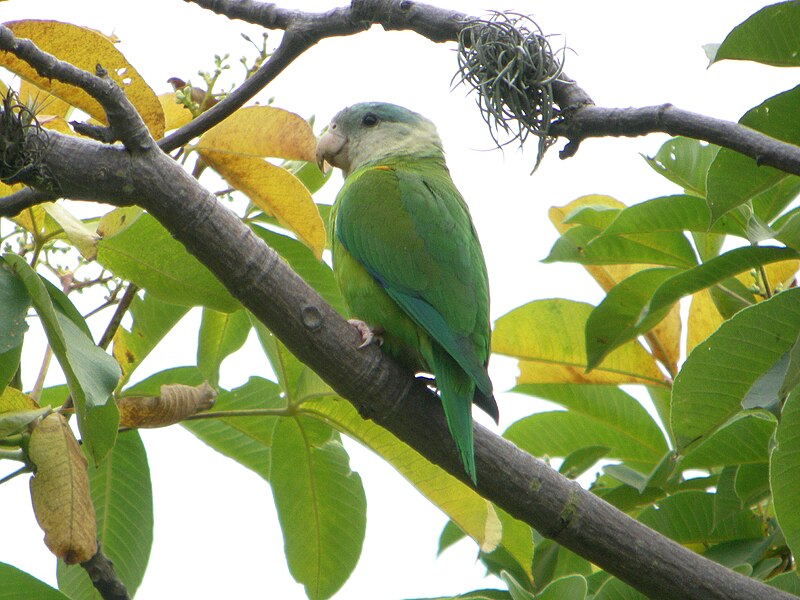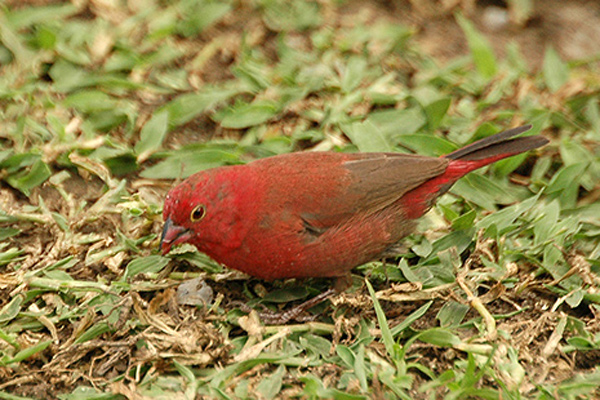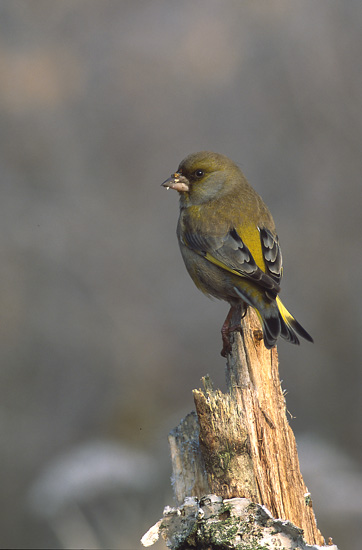 It’s very difficult to choose “bests” among parrots, because both bird and owner personalities and past experiences are so important. Parrots are very complex creatures, and within every species we find an incredible range of individual traits. With that in mind, today I’d like to highlight some parrots that, in general, are good choices for those new to parrot keeping and without the space needed for large species. I’ve chosen 5 that are often passed over by those without much experience, but which deserve a closer look. Please check the articles linked below or write in for more detailed information on their care. Read More »
It’s very difficult to choose “bests” among parrots, because both bird and owner personalities and past experiences are so important. Parrots are very complex creatures, and within every species we find an incredible range of individual traits. With that in mind, today I’d like to highlight some parrots that, in general, are good choices for those new to parrot keeping and without the space needed for large species. I’ve chosen 5 that are often passed over by those without much experience, but which deserve a closer look. Please check the articles linked below or write in for more detailed information on their care. Read More »
Category Archives: General Bird Care
Feed SubscriptionBreeding Canaries, Waxbills and Other Finches – The Importance of Insects
 Wild finches of almost every species consume beetles, spiders, caterpillars and other invertebrates throughout the year, and in large quantities both before and during the breeding season. While those we keep as pets may thrive on seed-based diets, providing them with a variety of insects will improve their health and encourage breeding. A reader’s note concerning his success with Bronze-Winged Mannikins and the onset of the spring breeding season here in the Northern Hemisphere have sparked me to take another look at this important topic. Read More »
Wild finches of almost every species consume beetles, spiders, caterpillars and other invertebrates throughout the year, and in large quantities both before and during the breeding season. While those we keep as pets may thrive on seed-based diets, providing them with a variety of insects will improve their health and encourage breeding. A reader’s note concerning his success with Bronze-Winged Mannikins and the onset of the spring breeding season here in the Northern Hemisphere have sparked me to take another look at this important topic. Read More »
New Study Confirms Birds Have Distinct Personalities
 Have you ever been met by blank stares when trying to convince “non-bird” people that your pet has a unique personality? You might be believed if you’re referring to a parrot, but a canary or other finch…not likely. However, a recent (April, 2011) study has confirmed that Greenfinches, Carduelis chloris, do indeed exhibit widely-varying personalities. My experience, and that of countless other bird-keepers, convinces me that this is true for other species as well.
Have you ever been met by blank stares when trying to convince “non-bird” people that your pet has a unique personality? You might be believed if you’re referring to a parrot, but a canary or other finch…not likely. However, a recent (April, 2011) study has confirmed that Greenfinches, Carduelis chloris, do indeed exhibit widely-varying personalities. My experience, and that of countless other bird-keepers, convinces me that this is true for other species as well.
Behavioral Responses
By measuring stress levels in the blood of Greenfinches, researchers at the University of York (UK) established that differences in behavior were directly correlated to distinct personality types. Read More »
Breeding Zebra Finches
 The ever-popular Zebra Finch, Taeniopygia guttata has been kept in captivity for almost 150 years, and is considered by most to be an “easy breeder”. However, the ease of breeding these little beauties should not be taken as an excuse to ignore their basic needs. While they will nest even under poor conditions, only when given proper care will breeding pairs remain in top condition and reward you with healthy, robust chicks.
The ever-popular Zebra Finch, Taeniopygia guttata has been kept in captivity for almost 150 years, and is considered by most to be an “easy breeder”. However, the ease of breeding these little beauties should not be taken as an excuse to ignore their basic needs. While they will nest even under poor conditions, only when given proper care will breeding pairs remain in top condition and reward you with healthy, robust chicks.
Enthusiastic Breeders
Zebra Finches provide an excellent introduction to captive bird breeding. They are native to Australia’s hot, dry grasslands and have evolved the ability to reproduce whenever ideal conditions (i.e. rain and mild temperatures) present themselves.
Unlike most birds, Zebra Finches that that are always supplied with ample food and nesting sites may breed year-round, producing 6 or more clutches (this is a drain on the hen, however- please see below). What’s more, they are wonderful parents and their courtship rituals and care of the young are a joy to observe. Read More »
Canaries in the Spring – Frequently Asked Questions on Breeding and Nesting
The Canary (Serinus canaria) is the world’s most popularly-kept song bird. However, certain basic questions still commonly arise, especially as spring approaches and Canaries begin to show breeding behavior. Unfortunately, both sound and unsound information has made its way onto the internet. Today I’ll cover some questions that usually come up as winter ends and avian fancies turn to reproduction.
Why won’t my male Canary sing?
Males that are not in the peak of good health will usually forgo singing. A singing male is advertising his vigor, suitability as a mate and ability to defend his territory – instinct will compel a sick male remain silent.
Males that are molting rarely sing. As with all birds, molting individuals cannot fly as well as usual, and are using energy and calories to grow new feathers…it is not in their best interest to attract the attention of predators or competing males. Read More »
 That Bird Blog – Bird Care and History for Pet Birds
That Bird Blog – Bird Care and History for Pet Birds
